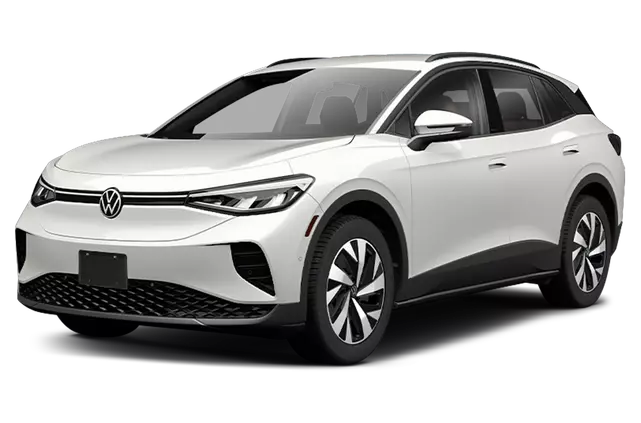In the ever-evolving landscape of the automotive industry, electric vehicles (EVs) have emerged as the pioneers of sustainable transportation. With a relentless commitment to reducing carbon emissions and dependence on fossil fuels, many countries have taken up the challenge of becoming leaders in EV production.
This article will explore the top five countries at the forefront of this electric revolution, analyzing their innovative approaches and government initiatives. Let’s embark on this exciting journey and discover the driving forces behind these nations’ rise in electric mobility.
China: The Global Leader
China, with its vast population and ambition for technological dominance, has emerged as the unrivaled leader in EV production.
China’s impressive infrastructure development for charging stations across major cities has further boosted consumer confidence in adopting electric vehicles. Additionally, generous subsidies provided by the government have made owning an EV more affordable.
Leading Chinese automakers such as BYD Auto and NIO Inc have driven innovation within this sector. These companies continue to invest heavily in research and development to produce high-quality electric vehicles with longer ranges at competitive prices.
By combining favorable government policies, generous subsidies, and a robust charging infrastructure, China has created an ecosystem that fosters the widespread adoption of EVs.
2. United States: A Pioneer in Electric Vehicle Manufacturing
The United States has long been at the forefront of technological innovations, including those related to green energy solutions like electric vehicles. Tesla Inc., founded by Elon Musk, is undoubtedly one of America’s most iconic brands in manufacturing high-performance electric cars.
Tesla’s Model S sedan and Model X SUV revolutionized the industry by offering long-range capabilities along with cutting-edge autonomous driving features.
Furthermore, Tesla’s Gigafactory, based out of Nevada, is not only one of the largest battery factories globally but also plays a crucial role in maintaining its position as a leader among global EV manufacturers.
Apart from Tesla, traditional American automakers such as General Motors and Ford have also made substantial investments in EV production. With the continued growth of charging infrastructure, the United States will likely remain a key player in this industry.
Furthermore, government initiatives, such as federal tax credits and investments in charging infrastructure, have propelled the United States forward in the EV race. States like California have implemented stringent emission regulations, encouraging automakers to prioritize EV production.
3. Germany: Combining Engineering Excellence with Electric Mobility
Germany has always been synonymous with automotive engineering excellence, and it’s no different when it comes to electric vehicles. The country’s automakers have embraced electrification and are investing heavily in producing high-quality EVs with exceptional performance while maintaining their renowned reliability.
Volkswagen Group, one of the world’s largest automobile manufacturers, has set ambitious goals to produce over 1 million electric vehicles annually by 2022. Other German brands, such as BMW and Mercedes-Benz, are also actively developing electric models across various segments to cater to consumer demands.
Furthermore, Germany boasts an extensive network of charging stations throughout the country, making it easier for consumers to switch from conventional gasoline-powered vehicles to EVs. With its blend of engineering prowess and commitment to sustainability, Germany continues to be a major player in the global EV market.
4. Japan: Pioneers of Hybrid Technology
Japan, a nation renowned for its technological advancements and innovative spirit, has been a pioneer in electric vehicle production. Home to industry giants such as Nissan, Toyota, and Honda, Japan has harnessed its engineering expertise to develop cutting-edge EV technology and establish a significant presence in the global market.
Nissan’s introduction of the Nissan Leaf, the world’s first mass-produced EV, revolutionized the automotive industry and showcased Japan’s commitment to sustainable transportation. The Japanese government has also implemented supportive policies, including tax incentives and subsidies, to encourage EV adoption.
With continued investment in research & development coupled with strong domestic demand for EVs due to government incentives promoting green mobility solutions – Japan is poised to remain a key player in the electric vehicle market.
5. Norway: Setting High Standards for EV Adoption
Norway may not be one of the largest automotive manufacturers globally, but it has set incredibly high electric vehicle adoption and production standards. In fact, Norway boasts the highest per capita number of EVs on its roads compared to any other country.
The Norwegian government has implemented various measures to incentivize consumers to purchase electric vehicles. These include exemptions from import taxes, reduced toll fees, and free parking for EV owners. Such policies have made owning an electric vehicle exceptionally attractive in Norway.
Moreover, Norway’s commitment to renewable energy means the charging infrastructure is well-developed. This further enhances consumer confidence in adopting EVs as their primary mode of transportation.
While traditional automakers play a significant role in most countries electrification transitions, startups like Think Global AS (known for their Think City model) have also emerged within Norway’s borders – showcasing the nation’s commitment to sustainable mobility solutions.
Government incentives, such as zero import taxes, generous subsidies, and exemptions from tolls and parking fees, have made EV ownership highly attractive to Norwegian consumers. Furthermore, an extensive charging infrastructure, including an impressive number of fast-charging stations, has alleviated range anxiety and further supported the widespread adoption of EVs.
Conclusion
As the world embraces the electrification of transportation, these top five countries have emerged as the leaders in electric vehicle production, each with unique approaches and strengths. China’s sheer scale and ambitious government initiatives have propelled it to the top, while the United States continues to innovate and drive the industry forward.
While these countries currently dominate the EV market, it’s essential to recognize the global nature of this transition. Many other nations, including India, France, and the United Kingdom, are making significant strides in electric vehicle production and adoption.
With the collective efforts of these countries and others around the world, the electric revolution is well underway, promising a cleaner, greener future for transportation.


